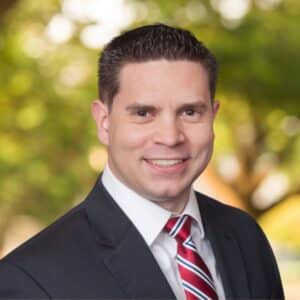Education law is a specialized practice relating to federal and state education, from preschool through postgraduate studies. Every child has a right, protected by federal law, to receive a free and appropriate public education. Any person who is harmed in an educational setting—public schools or private—may need an education lawyer in Richmond, VA.
Let’s discuss exactly what an educational lawyer does and why they are so necessary to protect the rights of our youth. Keep in mind that this is only intended to be helpful information and not legal advice.
What does an Educational Lawyer Do?
Educational lawyers advocate on behalf of a student or parent of a student concerning a child’s day-to-day education. They represent clients in disputes concerning:
- A school, school system, or school board.
- A public school or private school.
- Instructional materials.
- School faculty, staff, or other students.
- School discipline, including student expulsion and suspension.
- Discrimination in school based on race, religion, color, gender, or national origin.
But education lawyers cover far more than that, and their expertise goes outside of the classroom walls to cover legal disputes concerning:
- School boundary disputes
- School athletics
- School-related programs
- Violation of Title IX rights
- Violations of the Individuals with Disabilities Education Act (IDEA)
Educational lawyers in Richmond, Virginia practice in the district court for the eastern district of Virginia.
Why Are Education Lawyers Necessary?
Ideally, the school systems themselves would ensure that students’ rights are protected. However, when the system fails the students, lawyers are there to stand up for them.
Here are some reasons that education lawyers are necessary:
- Students have rights. Some students have Individualized Education Plans (IEPs) that mandate special accommodations for their special learning needs. Others have 504 Plans, which require accommodation for other disabilities. In either case, these accommodations must be provided by the school, or else the child is a victim of discrimination by the school.
- Schools are supposed to be trusted places. Students and parents often don’t realize that their rights are being violated because they give the benefit of the doubt to school officials. Dedicated professionals who understand education law can ensure your child has the best opportunities that are guaranteed under the law.
- Schools can be large institutions. Standing up for your child’s rights against a powerful school system can seem intimidating. Parents often feel powerless and hopelessly confused by the bureaucracy of a school or university, and institutions have a way of making individuals feel outnumbered. But education lawyers know the law and will help you stand firm for your rights.
- Educational law covers various types of law. Educational lawyers must be versatile, as some issues they contend with are Title IX concerns while others still are Title IX violations. In cases of abuse or violence, an educational lawyer will handle the civil proceedings for monetary damages, while a prosecuting attorney will take over the criminal charges.
Contact Us
Not all law firms have experience with education law, but at the law firm of WhitbeckBennett, we have years of experience advocating for students and parents in the Richmond region.
We understand the rights of students and know how to hold schools accountable. We never back down when it comes to fighting for the Civil Rights of the students of Virginia, especially those with IEP or 504 plans.
If you have concerns about your child’s education or would like to have a consultation with an education lawyer Richmond, VA, don’t hesitate! Call WhitbeckBennett today at 800-516-3964, or contact us here.

By Jacob E. Smith
Partner
Jacob E. Smith is a partner at WhitbeckBennett who focuses primarily on family law. Practicing since 2012, Jacob has represented clients in a variety of matters including family law, adoption, bankruptcy, criminal defense, business formation, corporate litigation, and mass-torts.
